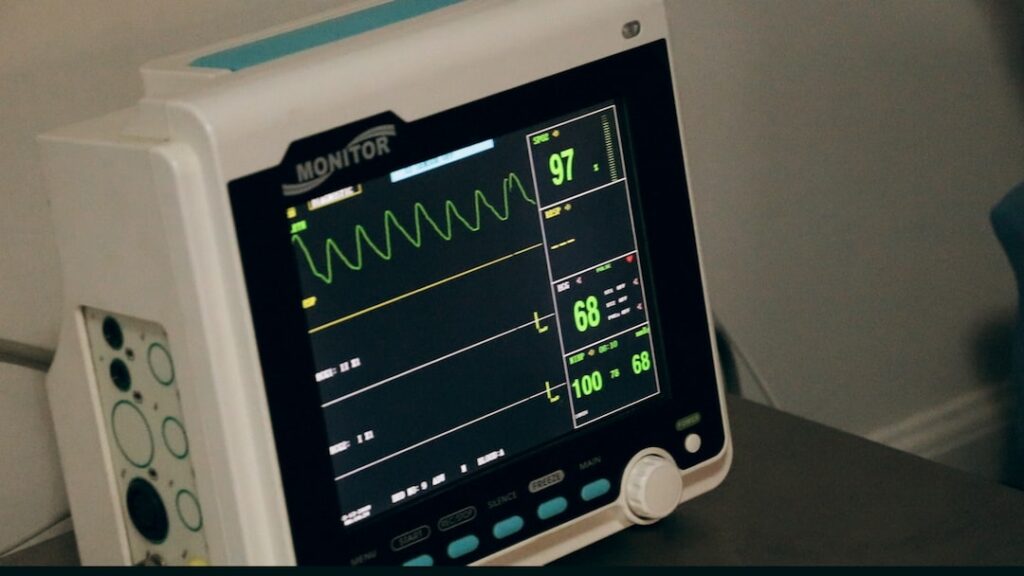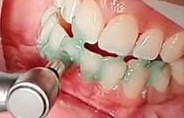
In a fascinating new study published in Frontiers in Oral Health, researchers have discovered that a simple mouthwash could potentially determine a person’s chances of developing heart disease. This groundbreaking finding could revolutionize the way cardiovascular disease is detected and help implement preventive measures at an earlier stage.
The study focuses on the relationship between oral health and the risk of cardiovascular disease, which has been gaining attention in recent years. Ker-Yung Hong, the first author of the study and a dentistry student at the University of Western Ontario, explains, “If we are seeing that oral health may have an impact on the risk of developing cardiovascular disease even in young healthy individuals, this holistic approach can be implemented earlier on.”
The key connection lies in the link between gum inflammation and a gum disease called periodontitis, which has been closely associated with cardiovascular disease. Periodontitis is a common yet preventable gum infection that damages the soft tissue surrounding teeth. By analyzing saliva samples obtained from a simple oral rinse, scientists believe they can potentially identify early warning signs of heart disease.
RELATED ARTICLE : HOW TO FIX RECEDING GUMS?
Scientists at Mount Royal University in Canada conducted the study by examining the levels of white blood cells, an indicator of gum inflammation, in healthy adults. The researchers assessed 28 non-smokers aged between 18 and 30 who had no known comorbidities or medications that could affect cardiovascular health, and no history of periodontal disease. Participants were instructed to fast for six hours prior to the study and had their mouths rinsed with water followed by saline, which was collected for examination.
Various cardiovascular health measurements were then taken, including an electrocardiogram (EKG) to evaluate the heart, as well as blood pressure, flow-mediated dilation, and pulse-wave velocity to assess arterial health. The findings revealed that high levels of white blood cells were associated with compromised flow-mediated dilation, indicating an early sign of poor arterial health, and suggesting a higher risk of cardiovascular disease.
It is worth noting that the levels of white blood cells found in the study were not considered clinically significant in terms of diagnosing cardiovascular disease. However, the researchers believe that higher levels of white blood cells could potentially have a greater impact on vascular (endothelial) dysfunction, a type of coronary artery disease that leads to narrowing of the arteries.
The study also uncovered that there was no immediate link between white blood cells and pulse-wave velocity, indicating that the long-term effects on artery health had not yet become apparent. However, further research and a larger study population are needed to explore these results in more depth.
The implications of this study are significant, as it suggests that a simple mouth rinse test could be incorporated into regular dental care visits or annual checkups with family doctors. Dr. Michael Glogauer, a co-author of the study from the University of Toronto, explains, “The mouth rinse test could be used at your annual checkup at the family doctors or the dentist. It is easy to implement as an oral inflammation measuring tool in any clinic.”

These findings should serve as a reminder of the importance of maintaining optimal oral hygiene and making regular visits to the dentist. Dr. Trevor King, the corresponding author of the study, emphasizes the need for further research, stating, “But this study was a pilot study. We are hoping to increase the study population and explore those results. We are also hoping to include more individuals with gingivitis and more advanced periodontitis to more deeply understand the impact of different levels of gingival inflammation on cardiovascular measures.”
CONCLUSION
This study highlights the potential of a simple mouthwash test to detect early warning signs of heart disease through analyzing biomarkers of gum inflammation. While more research is needed to validate these findings and understand the full scope of their implications, this innovative approach could bring about significant advancements in the early detection and prevention of cardiovascular disease.
RELATED ARTICLE : How To Fix Bleeding Gums? Say Goodbye to Bleeding Gums: Easy At-Home Remedies




